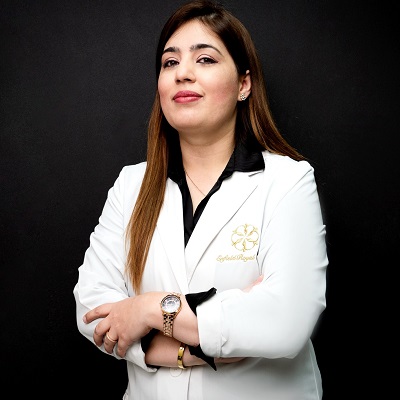
Cost of Intimate Surgery
Intimate surgical procedures, also referred to as genital cosmetic surgeries, are increasingly well-known in Dubai and around the world. Those
Delivering outstanding results | Offering personalised treatment plans | High success rates | Providing full clarity |
Are you worried about continual abdominal pain, unexplained jaundice, or digestive issues that just won’t go away? Do not worry! Many people suffer from situations associated with the liver and biliary tract, unsure of the cause and anxious about what steps to take.
However, if you are worried that your signs might also point to something extra serious, like gallstones, liver tumours, or bile duct obstruction? Learn about Biliary tract and liver surgery in Dubai and get the procedure done.
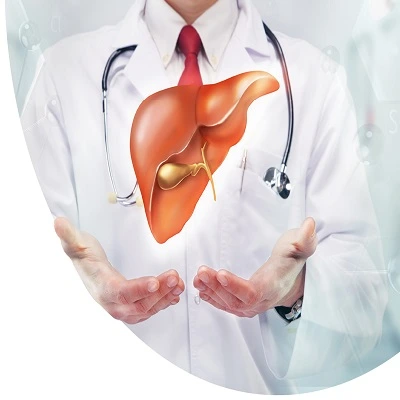
Cost: | Target area: Liver, bile ducts, and cancerous tumors. | Results: Permanent. | Procedure duration: It takes from one to two hours. |
Exercise: You should refrain from exercising for a month. | Full recovery: Takes 3 to 4 weeks. | Procedure type: Surgical. | Return to work: Work can be resumed after one to two weeks. |
Liver and biliary surgery in Dubai is a cosmetic surgery that treats liver diseases, benign and malignant tumors, and bile duct disorders. These surgeries require advanced techniques and extensive expertise to ensure safe and effective outcomes, especially in complex cases such as metastatic liver cancer surgery and bile duct surgery in Dubai.
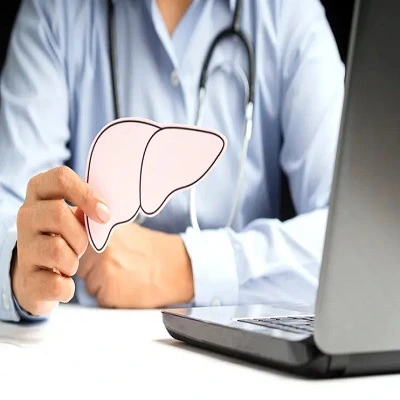
Liver | Bile ducts |
The liver is the largest solid organ in the body and plays a vital role in many essential functions, such as purifying blood coming from the heart, distributing it to the intestines for absorption of nutrients, and then returning it to the heart and lungs. It also contributes to the production of bile, which aids in the digestion of fats in the intestines, making it an essential organ in metabolic processes. | The bile ducts are a network of passages that transport bile from the liver to the small intestine. They begin by branching out inside the liver, then connect to the bile duct in the gallbladder before emptying into the digestive system, where they help digest fats and absorb nutrients. This procedure aims to remove blockages or repair damaged ducts, which helps relieve pain and improve the patient’s quality of life. It may also involve reconnecting healthy ducts to ensure normal bile flow and restore efficient digestive function. |
Liver Functions
| Bile Duct Functions
|
Some cases may require liver surgery for various reasons. This type of surgery is often performed to treat liver diseases or tumors. When a doctor recommends removing part of the liver, the goal is to remove the affected tissue to limit the spread of infection or cancer cells, thus improving the chances of recovery.
Liver surgery is performed to treat many health conditions, the most prominent of which are:
Liver surgery can treat the following problems:
Liver surgery is a specialised procedure used to treat cancers and diseases of the liver, pancreas, gallbladder, bile ducts, and other organs.
Indications for liver and bile duct surgeryLiver and bile duct surgery is performed to treat a variety of conditions, both cancerous and non-cancerous, and includes removing tumors and treating associated complications. These procedures aim to improve liver function, limit the spread of disease, and enhance the chances of a full recovery. | |
Cancer cases:
| Non-cancerous conditions:
|
Candidates who can get for biliary tract and liver surgery include :
There are several methods for accurate liver diagnosis in Dubai, including:
The most common surgeries are as below:
Hepatic surgery Dubai involves removing a portion of the liver while preserving healthy tissue. This procedure is used to treat various types of liver tumors, including benign tumors, metastatic liver cancer, and the rare bile duct cancer.
In some cases, additional tissue, such as parts of the bile ducts or lymph nodes, may need to be removed to ensure complete removal of the affected cells.
Robotic hemihepatectomy is a surgical procedure in which a portion of the liver is removed using advanced robotic technology. The liver is a vital organ in the body, playing a key role in filtering toxins from the blood, producing bile, and regulating metabolism. During this procedure, the right or left lobe of the liver is removed, depending on the patient’s medical condition.
Types of pancreatic cancer surgery include :
Patients must follow the following instructions before the procedure, which include:
The liver resection procedure involves the following steps:
Note: Due to the complexity of this procedure, it is only performed by highly experienced surgeons.
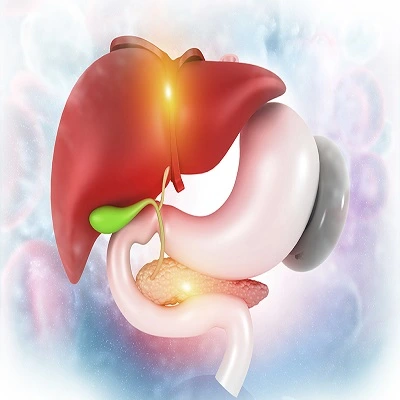
Recovery Aspect | Details |
Total Recovery Period | Typically, 5 to 7 days |
Initial Hospital Stay | First 2 days under close monitoring to ensure stability |
Diet After Surgery | Eating usually begins within the first few days, under medical guidance |
Common Side Effects | Nausea, vomiting, constipation |
Cause of Side Effects | Often due to painkillers or antibiotics used during recovery |
The cost of bile duct and liver surgery in Dubai ranges from 100 AED to 1000 AED. However, this price is not fixed, as the cost is affected by several factors.
To know the exact cost, you can have a liver surgery consultation in Dubai with the best liver surgeon in Dubai, who will determine the price based on the patient’s specific condition.
Risks associated with bile duct and liver surgery include :
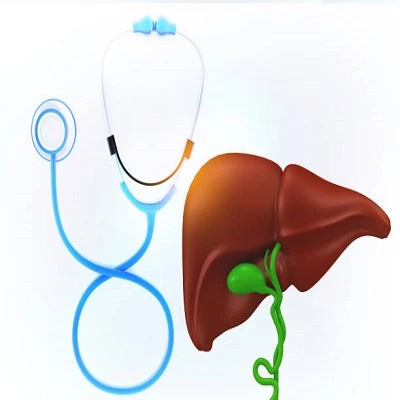
Determining life expectancy after liver resection is complex, as it depends on several factors, including the patient’s overall health, the stage of the disease, and the success of the surgery. However, statistics show that long-term relapse-free survival rates can reach 40% or more.
However, in cases where tumours are detected early and are small and localised, the chances of success are higher, with survival rates reaching 90%, especially when surgery is performed in advanced medical centers and by specialized surgeons.
To book an appointment at Tajmeels Clinic with one of the best surgeons specialising in liver and biliary tract surgery, please fill out the form or contact the clinic directly. We are here to provide advanced surgery with personalized recovery.
The length of your hospital stay after liver and gallbladder surgery depends largely on the specific procedure performed and your recovery process.
There are some restrictions you need to avoid. These include exercising and doing activities that strain your body. Also, ask your doctor for further instructions on this.
You likely won’t be able to drive immediately after bile duct surgery, but the exact timeframe depends on several factors, including medications, pain in the treated area, and the progress of your healing process.
Yes, there will likely be some dietary restrictions after surgery, but the details will depend on the type of surgery you’ll undergo. However, you should stay hydrated and follow a soft diet.
Yes, there is a potential risk of decreased blood production after this surgery, especially with certain procedures or if complications arise. You can ask your doctor to perform appropriate post-operative tests to monitor this condition.
Yes, you will likely need to visit the clinic for follow-up appointments after surgery. The specific schedule will vary depending on the type of surgery you undergo and the progress of your recovery.
Our Gallery

Intimate surgical procedures, also referred to as genital cosmetic surgeries, are increasingly well-known in Dubai and around the world. Those

Are you disappointed by the decline in your sexual performance? Do you find yourself suffering from erectile dysfunction or feeling

Hemorrhoids, also known as piles, are a commonplace medical situation that can cause considerable soreness and inconvenience. In Dubai, a


